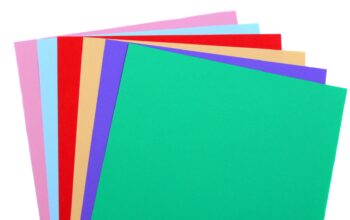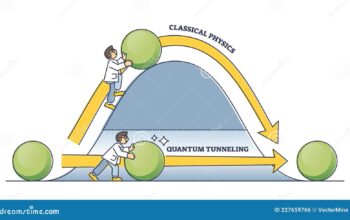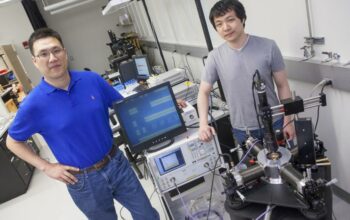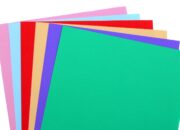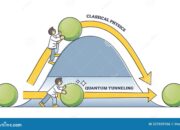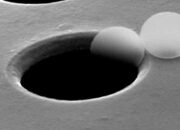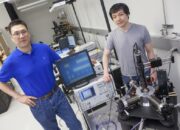In an era where classical computation is increasingly reaching its theoretical limits, the allure of quantum computing has emerged as a beacon of potential innovation. However, embarking on a journey into the nuanced realm of quantum computation requires a robust foundation. This article seeks to elucidate the pathways one can traverse in pursuit of enlightenment in quantum computing. Yet, a playful question arises: How can an individual, who perhaps has only scratched the surface of classical computation, foster a profound understanding of quantum mechanics to successfully navigate this intricate domain? The challenge is certainly substantial, but the rewards are equally magnificent.
To commence this intellectual endeavor, it is imperative to lay a solid groundwork in the foundational concepts of quantum mechanics. Familiarity with quantum principles is not merely beneficial; it is essential. A comprehensive understanding of concepts such as superposition, entanglement, and wave-particle duality forms the backbone of quantum computing. These principles challenge classical intuitions and introduce a framework that defies conventional logic. Texts like “Quantum Mechanics: The Theoretical Minimum” by Leonard Susskind can serve as a rigorous yet accessible introduction to these concepts. Engaging with such literature will stimulate one’s analytical faculties and orient them within the quantum paradigm.
Following the grounding in quantum mechanics, one should engage with linear algebra, a mathematical discipline that is indispensable in understanding quantum systems. Quantum states are represented as vectors in complex vector spaces, and operations on these states are formulated through matrices. Mastery of linear algebra—including eigenvalues, eigenvectors, and unitary transformations—will empower a researcher to grasp the mathematical language that resonates within quantum theory. Integrating resources like Gilbert Strang’s “Linear Algebra and Its Applications” into your study would be an astute move.
Once a foundation in quantum mechanics and linear algebra has been established, one may then ambitiously venture into the realm of quantum computing systems and their architectures. Understanding qubits, quantum gates, and quantum circuits will further enhance one’s comprehension of how quantum information is processed. A plethora of online courses, notably those offered by platforms such as Coursera or edX, provide a structured approach to these topics. Noteworthy among these is the “Quantum Computing Fundamentals” specialization, which takes participants through an incremental learning process, preparing the ground for further inquiry.
As one begins to delve into the practical aspects of quantum computing, it introduces a new dimension of challenges. A researcher must grapple with the intricacies of quantum algorithms. Traditional algorithms have their map drawn on a binary landscape, while quantum algorithms unfurl their potential via probabilistic outcomes and parallel computations. Starting with classical algorithms implemented on quantum computers, such as Grover’s search algorithm and Shor’s factoring algorithm, can serve as a springboard. These algorithms manifest the stunning advantages offered by quantum systems. Academic papers and case studies detailing these algorithms will provide nuanced insights into their implications.
Connecting theory to practice transcends mere comprehension of algorithms; it necessitates interaction with quantum computing frameworks. Platforms such as IBM Q Experience and Google’s Quantum AI offer cloud-based quantum computers that enable users to experiment with real quantum hardware. The practical experience gained through executing quantum algorithms and simulations cannot be overstated. It challenges the theorist to confront the concrete limitations of current technology, thereby fostering a deeper understanding. Embracing this practical engagement could be perceived as an exhilarating challenge, as one navigates through quantum gates and entangles states.
Moreover, participating in collaborative forums and communities can significantly augment the research experience. Engaging with fellow enthusiasts and professionals in quantum computing can provide unique perspectives and insights. Platforms like Stack Exchange Quantum Computing or Reddit communities dedicated to quantum discussions can serve as vital resources for obtaining advice and troubleshooting issues encountered during one’s studies. Additionally, attending workshops, seminars, and symposiums dedicated to quantum information science can further enhance networking opportunities and intellectual exchanges.
The dynamic landscape of quantum computing is also home to an array of interdisciplinary pursuits. This domain invites expertise from varying fields including computer science, physics, electrical engineering, and even philosophical inquiry into the complexities of information. Embracing this interdisciplinary approach not only enriches one’s understanding but also broadens the analytical toolkit available for tackling quantum challenges. Engaging in collaborative projects that include diverse academic perspectives can catalyze innovation and foster novel solutions to existing problems in quantum computing.
To encapsulate the journey into quantum computing, it is pivotal to remain abreast of the latest advancements in the field. The pace of technological progress in quantum computing is exhilarating, with new algorithms, architectures, and discoveries emerging almost daily. Subscribing to journals such as “Quantum Information & Computation” or following prominent researchers in the field on platforms like ResearchGate can keep you well-informed of cutting-edge developments.
As this exploration of quantum computing unfolds, enthusiasts will invariably encounter both the exhilarating thrill of discovery and the labyrinthine challenges that interlace this nascent field. The call to researchers is clear: to cultivate resilience, curiosity, and a passion for innovation. Ultimately, the cerebral odyssey into quantum computing is not merely a quest for knowledge but rather an invitation to participate in a transformative shift in our understanding of computation and reality itself. Are you ready to embark on this challenging yet rewarding expedition? The quantum realm awaits.


